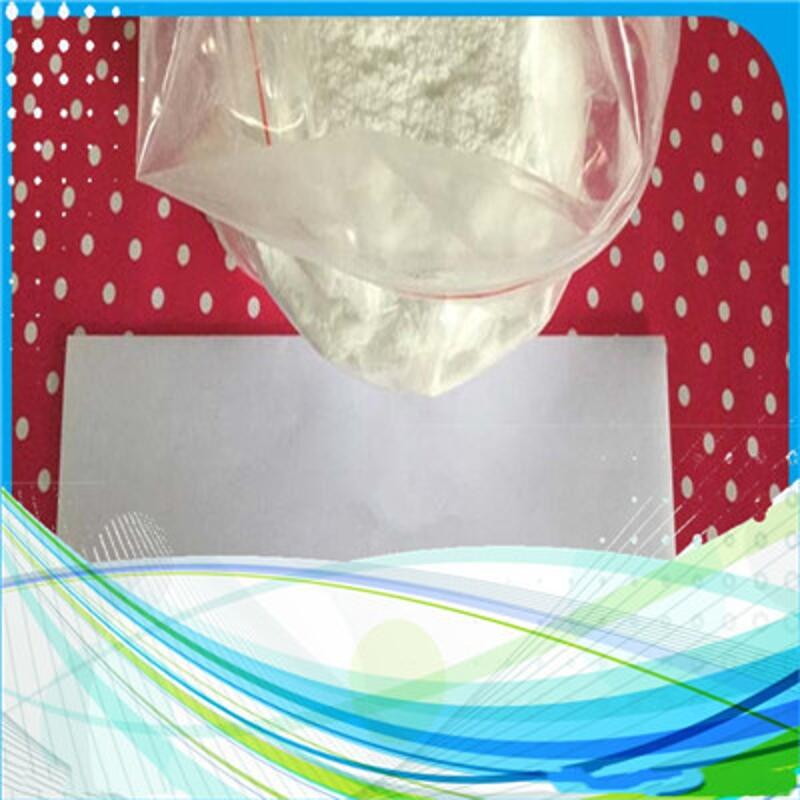The latest research progress of hypertension
-
Last Update: 2019-06-13
-
Source: Internet
-
Author: User
Search more information of high quality chemicals, good prices and reliable suppliers, visit
www.echemi.com
June 13, 2019 / BIOON / - this issue will bring you the latest research progress on hypertension and help you understand the latest research trends on the pathogenesis, prevention and treatment of hypertension 【1】 Alert! Licorice tea can cause hypertension emergency! Licorice tea causes hypertensive energy in patient, a case study of a man hospitalized for emergency treatment of hypertension, shows that licorice tea (a popular herbal tea) is not without health risk Dr Jean Pierre faLet, neurologist at McGill University in Montreal, Quebec, said: "some herbal products can have harmful side effects if they are overdone Products containing * Glycyrrhiza root extract will increase blood pressure and lead to water retention If excessive intake is taken, it will also reduce potassium levels "The 84 year old man went to the emergency room for a high blood pressure emergency and found it was caused by drinking a tea made from licorice root He had a high blood pressure and suffered from headaches, light sensitivity, chest pain, fatigue and water in his lower legs After admission, the patient with a history of hypertension told doctors that he had to drink one or two cups of self-made licorice root extract called ERK sous every day two weeks ago Licorice tea is very popular in the Middle East and parts of Europe, and ERK sous is particularly popular during Ramadan in Egypt "Given Canada's multicultural population, doctors should consider screening Glycyrrhiza intake in patients with uncontrolled hypertension "Said Dr faLet 【2】 EUR heart J suppl: stunned! About 50% of the population may not realize that they have high blood pressure doi: 10.1093/eureartj/suz076 In a recent study published in the international journal European Heart Journal supplies, scientists from the University of Western Australia and other institutions found that in Australia, 50% of high blood pressure patients may not realize that they have been ill High blood pressure is the biggest cause of cardiovascular death in the world, and it also affects the health of about 6 million Australian adults In this study, the researchers studied 3817 adults, 31.2% of whom had high blood pressure, and only half of them knew their condition In the treated individuals, 40% of them still had higher blood pressure than the standard value, while those who smoked, drank or had cerebrovascular disease had higher risk of blood pressure rise Researcher Markus Schlaich said that although there are many effective treatments for hypertension, only half of the affected individuals can be treated, and only 60% of the treated people can control their blood pressure This may indicate that most of the patients with high blood pressure may have had blood pressure measurement and didn't realize their condition; in 2017, about 10.4 million people died of high blood pressure Currently, high blood pressure affects the health of more than 1 billion adults globally, and it is estimated that by 2025, the number will increase to 1.5 billion Many young people think that high blood pressure usually only occurs in the elderly and inactive people, but in fact, the proportion of young people suffering from high blood pressure is also very high, but the treatment is relatively easy, and the treated individuals can still have a normal and healthy life High blood pressure patients do not always have obvious symptoms, but if they are not treated in time, the consequences are tragic, often leading to stroke, kidney or heart failure, the researchers said So the researchers strongly suggest that people should know their blood pressure and whether they have any undiagnosed problems 【3】 Hypertention: low dose radiation increases the risk of hypertension doi: 10.1161/hypertensionaha.118.11719 according to a study of Russian nuclear power plant workers published in the journal hypertention of the American Heart Association, long-term exposure to low dose ionizing radiation increases the risk of hypertension Uncontrolled high blood pressure can lead to serious health problems such as heart attack, stroke and heart failure Early studies linked high-dose radiation exposure to cardiovascular disease and increased risk of death from these diseases This study is the first to find an increased risk of high doses of ionizing radiation in large numbers of workers who have been exposed for many years The study included more than 22000 workers at the Mayak Production Association, Russia's first large nuclear power company These workers were employed between 1948 and 1982 for an average of 18 years Half worked there for more than ten years All workers should have a comprehensive health examination and screening test at least once a year, and a senior assessment every five years The researchers assessed the health records of workers as of 2013 More than 8400 workers (38% of the group) were diagnosed with high blood pressure As defined in this study, the systolic blood pressure reading was? 140 mm Hg, DBP? 90 mm Hg The incidence rate of hypertension was significantly correlated with cumulative dose Although the development of cancer is usually related to radiation exposure, "we believe that the estimation of harmful health consequences of radiation exposure should also include non cancer health results "We now have evidence that radiation exposure can also lead to increased risk of hypertension, cardiovascular disease and cerebrovascular disease," said Dr Tamara azizova, lead author of the study at the Institute of Biophysics in Southern Ural, Russia 【4】 Hypertens res: Alert! The earlier the menarche, the higher the risk of hypertension in later life! Doi: 10.1038/s41440-019-0235-5 according to their latest research, the age of women's menarche is related to their high blood pressure in their later years The researchers found that the earlier menarche occurs, the higher the possibility of high blood pressure in their later years The study, published in hypertension research, aims to find out the effect of the time of menarche and menopause on some chronic diseases in later life However, the existing research has not reached a consensus Source: University of Rochester illustration / Jeff tithof "some studies have shown that early menarche increases the risk of hypertension in later life, while others have the opposite "Said Luqi Shen, the study's author and doctoral student at the UGA School of public health The researchers assessed data from 7893 Chinese women who participated in the longitudinal study of health and retirement in China, including information on the biology, demographic characteristics and lifestyle habits that may lead to hypertension Shen said the connection may be explained by the speed of our body's development When a system of the body develops or degenerates early, it will affect other parts of the body "Women with early menarche do not have the best cardiovascular system development, so the risk of serious diseases like hypertension in later life is higher So that's the relationship between the time of menarche and the risk of high blood pressure "But once they control other factors, they can't find a strong link between the time of menopause and blood pressure "It's interesting that this association can be explained entirely by body mass index "Said Shen "This shows that weight control during menopause is important for blood pressure management, and we believe that this phenomenon applies to all women, not just Chinese women "[5] neurology: hypertensive pregnant women have an increased risk of stroke doi: https://doi.org/10.1212/wnl.0000000000006815 according to a recent study published in the journal Neurology, women with a history of hypertensive disorders during pregnancy (HDP) have a higher long-term risk of stroke, and aspirin use has a reduced risk The results of this study suggest that women with a history of pregnancy induced hypertension (HDP) have a higher long-term risk of stroke due to aspirin use Dr Elizabeth C Miller and colleagues from Mailman School of public health at Columbia University in New York analyzed data from 83749 women who participated in the California teacher study Patients were enrolled in 1996 (< 60 years) and tracked in 2015 using data related to hospital records in California The researchers found that 4.9% of women had HDP Women with previous HDP had an increased risk of stroke (adjusted risk ratio [HR], 1.3; 95% confidence interval [CI], 1.2 to 1.4) However, the risk of stroke did not increase before age 60 (adjusted HR, 1.2; 95% CI, 0.9 to 1.7) There was interaction between aspirin use and history of HDP before 60 years of age (P = 0.18), non users of aspirin had a higher risk (adjusted HR, 1.5; 95% CI, 1 to 2.1), and no users were found in aspirin (adjusted HR, 0.8; 95% CI, 0.4 to 1.7) Statins have no effect "The history of preeclampsia has not been considered in the calculation of 10-year cardiovascular risk, but may need to be included in the risk assessment guidelines," Miller said in a statement "Some women with this history may need primary prophylactic treatment with aspirin, even if there are no other vascular risk factors "[6] NAT commun: hypertension may induce Alzheimer's disease doi: 10.1038/s41467-018-07318-3 recently, an international journal Nature In the Research Report on communications, scientists from the University of Rochester found that the brain's waste removal system is mainly driven by the pulsation of adjacent arteries The pulsation induced by high blood pressure may slow down the removal of waste, thus reducing the efficiency of the brain, which may be able to explain the high blood pressure and Alzheimer's disease Alzheimer's disease is one of the most common forms of dementia in the elderly, which is characterized by abnormal clumps and tangles of fiber bundles in the brain Researcher Maiken Nedergaard and colleagues describe for the first time how cerebrospinal fluid is pumped into brain tissue to wash away waste, and when we are sleeping and damaged by stroke and trauma, the brain's lymphoid waste disposal system is activated In this study, the researchers first injected tiny particles into the cerebrospinal fluid of mice, and then used two-photon microscopy to record videos to show how the particles moved in the perivascular space The researchers found that the flow of cerebrospinal fluid in the brain is synchronized with the heartbeat, which is mainly driven by the bending of the arterial wall When induced hypertension in mice, the flow will slow down, and the efficiency will be reduced The muscles in the arterial wall are relatively developed When the internal pressure is greater, they must bend hard to maintain the same shape, and will become harder 。 As early-onset hypertension is considered to be a risk factor of human Alzheimer's disease, there may be a gap between what researchers can do at present and the research of chronic hypertension; perhaps hypertension can inhibit waste removal from the brain by reducing the pumping of cerebrospinal fluid, thus inducing Alzheimer's disease The results of this study may be able to solve some disputes among researchers, that is, whether the direction of CSF flow in lymphoid system is the same as that of artery flow The results of this study show that the direction of CSF flow and artery flow may be the opposite Further studies are needed to elucidate the specific association between hypertension and Alzheimer's disease 【7】 ELife: scientists are expected to develop treatments for hyperemia
This article is an English version of an article which is originally in the Chinese language on echemi.com and is provided for information purposes only.
This website makes no representation or warranty of any kind, either expressed or implied, as to the accuracy, completeness ownership or reliability of
the article or any translations thereof. If you have any concerns or complaints relating to the article, please send an email, providing a detailed
description of the concern or complaint, to
service@echemi.com. A staff member will contact you within 5 working days. Once verified, infringing content
will be removed immediately.







